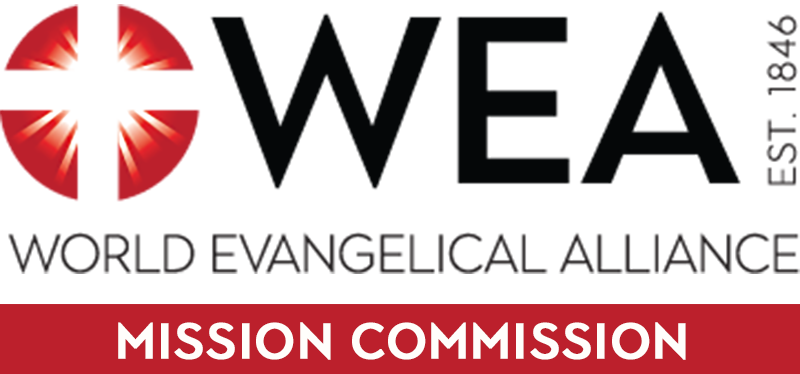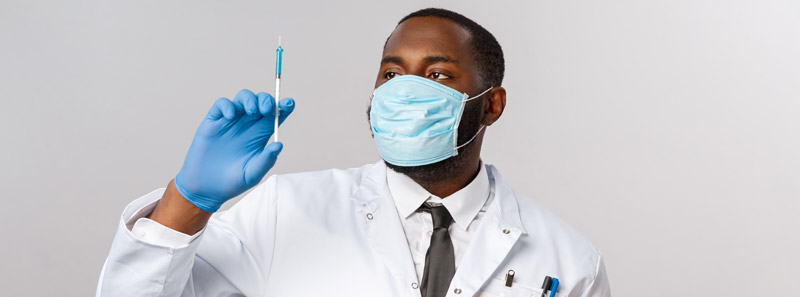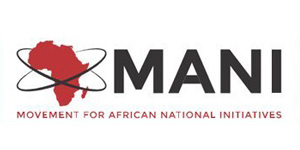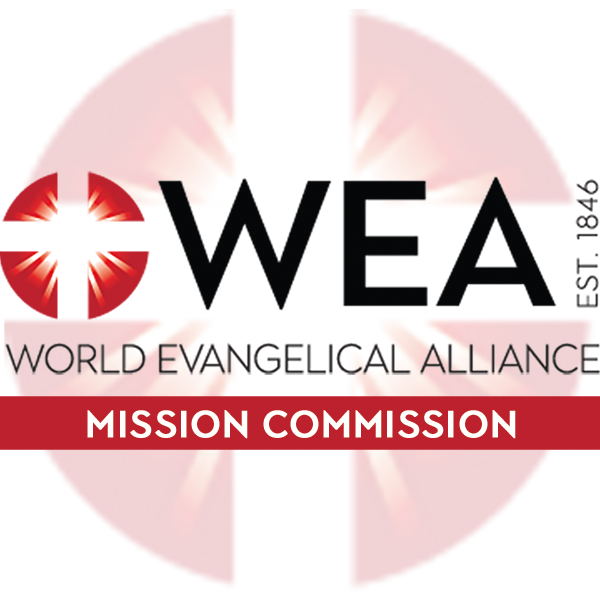MISSIONS IN A COVID CRISIS: NIGERIAN PERSPECTIVE
[30 Minute Read]
Dear fellow participants in God’s mission,
Grace and peace to you in the name of the Lord Jesus Christ.
It is conventional for leaders of churches and Christian organisations to contemplate what a new year would offer them in the continuation of their ministry objectives. They begin to pray, plan, and project their activities in the coming year right from the last two months of the current year.
So, during the December 31st ‘cross-over’ night, ritually observed to mark the end of the passing year and usher in the coming ‘new’ year, wishes are made of better prospects ahead. In the coming year, strategic plans for better and more effective outcomes are launched. Paths and roadmaps towards more impactful ministries are outlined. Slogans, ‘rhema revelations’, mission statements, and new year resolutions are rolled out. Of course, a number of prophetic declarations about several aspects of the moment-defining events and futuristic phenomena are churned out by various ‘oracles’, most of which claim to be speaking from the Lord.
Introduction
The same annual New Year ritual of projections and prophesies marked the end of the year 2019 and the beginning of 2020. The permutation conjured by the apparently mystical form of the number ‘2020’ made the predictions, the rhemas, the slogans, the mission statements, and prophetic declarations all the more attractive. Unfortunately, none of those ‘crystal ball’ gazes captured the ‘rising storm from the East’ that was already gathering strength and swirling towards the ‘West’… and inevitably flowed towards our corner of the world around the first quarter of the year 2020—to West Africa. We are experiencing this ritual again as we leave 2020, but this time something has changed. We are less certain.
“Africa has recorded fewer COVID-19 cases and deaths than other parts of the world.”
1. False Predictions
When the COVID-19 wind arrived on the African horizon, there was palpable fear in the hearts of the African people concerning how our corrupt governments, underdeveloped economies, poor health facilities, and battered social structures could survive in the face of the pandemic power of COVID-19. After all, it was causing the supposedly super economic powers, well advanced in their technological prowess, with well-developed health facilities, and well nurtured social systems, to buckle!
Predictions about the calamitous impact of COVID-19 on Africa and the African people came from very authoritative sources. For example, The United Nations Economic Commission for Africa (UNECA) predicted in April that, “Anywhere between 300,000 and 3.3 million African people could lose their lives as a direct result of COVID-19″. [1] The World Health Organisation (WHO) warned African countries to “prepare for the worst” [2], while Melinda Gates, co-chair of the Bill & Melinda Gates Foundation, in a CNN interview on April 10, said: “It’s going to be horrible in the developing world. And part of the reason you’re seeing that case numbers don’t look very bad is because they don’t have access to very many tests… Look at Ecuador. Look at what’s going on in Ecuador. They’re putting bodies out on the street. You’re going to see that in countries in Africa.” [3]
The situation, however, proved far different from the predicted outcomes. “But Africa has recorded fewer COVID-19 cases and deaths than other parts of the world. Despite the poor quality of health systems across the African continent, the case fatality rate (CFR) in Africa is among the longest [sic] globally, hovering around 2% against Europe’s 6.3%, South America’s 3.4%, North America (3.9%), and a global CFR of 3.7% as at August 7.” [4]
Several factors have been presented as the reasons why the predictions have not happened at the scale feared. Also, some measures that were taken by governments, individuals, organizations, communities within Africa in different ways and forms, were identified as having contributed to the exciting songs of relief that are being sung across Africa. Just as the pandemic itself impacted the Church and her missionary enterprises, the factors and measures which have disproved the predictions have also served very advantageous purposes for the Church and her missions.
Michal Shalem & Michal Lebenthal Andreson, in their article in The Jerusalem Post of March 14, 2020, highlighted various factors necessary in turning the corner in moments of such unprecedented emergencies like the ones thrown up by COVID-19: “Overcoming crises of this sort require the ability to quickly adapt to a new reality, to decentralize authority, to think differently, and to implement creative tools and strategies. Facing a new and unexpected challenge requires operating different tools and developing a new implementable modus vivendi (way of life).” [5]
In this essay we will explore the underlying measures in terms of how they played out as undertaken by the different constituencies and entities in Africa that have accounted for the commendable outcomes being highlighted in the stories about how Africa has prevailed against the COVID-19 pandemic so far.
The same characteristics and a few other measures identified in the efforts of the sections of the African Church and mission communities in Africa are explored in the following two examples: the Movement for African National Initiatives (MANI), and one of the oldest Western Missions that has worked in Africa for nearly a century.
First, for clarity, let me list the measures Shalem and Co. identified in the quote above:
- Quick adaptation
- Decentralization of authority
- Thinking differently
- Implementing creative tools and strategies
- Operating different tools
- Developing a new implementable way of living, a working arrangement that allows for peaceful co-existence despite perceived differences. [6]
…the common experience of the whole world: ‘disruption of the normal’ and the ‘imposition of the new-normal’ in all spheres of life, activity, ministry, relationships, and societal functions!
2. Discerning Times and Ordering Steps in Missions
2.1 Missions in and from Africa
When it became obvious in the Movement for African National Initiatives (MANI) that all the plans that we had made for this year (2020) and for our pending 4th quinquennial Continental Consultation (scheduled for March 2021) were under serious threat due to the pandemic, we had to pause to listen to God and to one another under the theme: “what are we hearing or learning from God in our regions and contexts in times like these?” [7] The following questions were drawn and distributed among the various regional and ministry network coordinators for reflections and investigations concerning the impact of COVID-19 in our regions and contexts:
- What has changed very drastically in our contexts as a result of the COVID-19 pandemic?
- What are the challenges, constraints, and limitations the Church, individuals, and the society in general now face in our contexts because of the pandemic?
- What should we be doing differently now?
- How should we adjust, jettison, or innovate our past approaches to still fulfil the Great Commission mandate from now onwards?
Responses to questions 1 and 2 were obvious and consistent with what has become the common experience of the whole world: ‘disruption of the normal’ and the ‘imposition of the new-normal’ in all spheres of life, activity, ministry, relationships, and societal functions!
The responses to questions 3 and 4 presented us the ways and means that now dictate and direct the “Next Steps” measures that we are adopting in remaining committed to the fulfilment of our understanding of the Great Commission mandate in times like these.
From the summary of the responses, here are what we gleaned, which have reshaped our ministry focus and approaches…
Q3. What we should be doing differently now?
- Improve awareness of the changing dynamics of the context and paradigms of missions, the concept of the UPGs, and the need for more creative and strategic approaches to doing missions.
- Be more strategic, innovative, and embrace more efficient use of resources, time and technology in our ministry efforts.
- Re-examine and reorder our priorities.
- Find new and appropriate ways of doing missions as well as new giving models to finance missions.
- Look afresh at what it means to be a church, including emphasis on really being a loving and sharing community.
- Explore new training and outreach techniques to do missions that allow disciples to grow without the need of physical buildings.
- Move away from large, in-person consultations, to smaller, networked gatherings with more consistent engagement online.
Q4. How should we adjust, jettison, or innovate our past approaches to still fulfil the Great Commission mandate from now onwards?
- Embrace new technologies for ministry purposes.
- Look at new ways of gospel transmission in unreached communities.
- Train our members on new and creative ways of fund raising and financial investments.
- Focus on raising, training, equipping and empowering local/national believers.
- Proactive research on and promotion of new categories of harvest-fields, harvest-forces, and best approaches of engaging each.
- Promote household churches; train more small group family heads and leaders, in the expectation that small group churches will become especially important.
- Strategic, healthy partnering is more crucial than ever.
- Exercise more intentionality in regular online networking platforms while maintaining disciplined and strategic use of the digital space.
- Promote ‘prayer evangelism’ and prayers for frontline workers.
- Every believer should be equipped to understand and be carrying out their role in the fulfilment of the Great Commission ensuring that the whole Body of Christ is mobilized and being a witness for Christ wherever and in whatever condition they find themselves.
2.2 Missions from Outside to Africa
One of the oldest missions from the West that has been working in Africa for almost a century also had a reflection and a resetting retreat at the onset of COVID-19 involving all their global stakeholders. The intent was to identify how they will remain relevant and more strategic in their ministry efforts in the ‘new-normal’ world. By the end of the retreat they concluded that they needed to continue to ‘be’ and ‘build’ a “truly global missions community”. The following are gleaned from the resolutions:
- Be intentionally innovative.
- Equip, strengthen, and work with local churches in our receiving contexts for missions.
- Identify and develop local workers and leaders.
- Engage local beneficiaries in all aspects of missions.
- Be rooted and invested in our communities.
- Regionalize services. [8]
The two examples of MANI and the older mission from the West working in Africa underscore what Shalem & Co. also emphasized in their article in The Jerusalem Post:
In emergencies, decentralization of powers and transfer of control to the ‘field’ is a necessity. Relying on local factors accustomed to work in routine situations will ensure better results and in fact allow to continue business as usual at times of crisis. Managers at the local level see what needs to be done firsthand and when given the freedom to manage and manoeuvre are able to control the situation. [9]
Africans had to reach into their innate capabilities to draw strength and inspiration to tackle the pandemic.
3. Creativity, Innovation, Contextuality, Adaptability
Sustainability of the missions enterprise in terms of general welfare of the missions force and the resourcing of missions programs and projects became a far-fetched imagination in a situation where the economies of countries have been battered, scarcity of provisions is prevalent everywhere, where individuals and organisations (including churches) have slid into survival mode and generosity has become a secondary consideration in peoples’ bid to plod through life.
3.1 Opportunities Born Out of Crisis
The economies of the majority of African countries are import-dependent. When it comes to social services regarding health, etc., African countries tend to look to the West for help to provide support facilities and aid packages for the citizens. But due to the universal impact of the pandemic, which has been more pronounced in the donor-countries of Europe and North America, there was not much assistance coming from those traditional bases of aid to Africa. So, Africans had to reach into their innate capabilities to draw strength and inspiration to tackle the pandemic.
One of the leaders of the missions movement in Nigeria released a statement in which he advised Nigerian missionaries to take up the practice of cottage farming, backyard horticultural practice, including other innovative farming methods like growing vegetables in pots hoisted onto tree trunks, and making use of every available space to produce whatever type of foodstuffs than can grow in such places. The purpose was for missionaries not to suffer malnutrition or hunger and to avoid spending the scarce finance they had on awfully expensive foodstuffs during this period. Many missionaries who took that advice seriously and practiced what was suggested are progressively becoming self-sufficient in raising their own foodstuffs for their sustenance and more—a means of generating extra income.
During lockdown periods when movement was restricted, offices and factories closed, the markets were not regular, businesses clamped down, and sources of income were jeopardized, the government tried to provide and distribute palliative measures. However, missionaries did not qualify as beneficiaries of such assistance. But thanks be to the Lord that some missions support agencies took up the challenge to provide missionaries with support in cash, materials, and even visits. One family provided for 25 missionary-wives in the Christian Missionary Foundation (CMF) fields, with about five million naira (N5 million = $10,500US) to set up various empowerment (income generating) projects in their locations. These happened in June at the peak of the pandemic here in Nigeria. It was also during this period that another Christian support group continued to provide several missionaries in Nigeria and other African countries with regular monthly support (including about US$570 per month for 10 missionaries in CMF), plus the purchase of five motorcycles for five other missionaries of CMF. Two other local churches in Nigeria have been regularly supporting numerous missionaries (including 7 & 11 CMF missionaries respectively). We now have a greater level of local support for our missionaries and the field projects during this crisis period than ever before.
Apart from helping individuals to minimize the risk of being infected, many people (including missionaries) became involved in processing and supplying those alternative ingredients for preventive and curative therapies.
3.2 Resilience & Adaptability
Further in their Jerusalem Post article, Shalem & Co. stated, “The basis for national and civil resilience, among other things, is to foster local government’s internal capacity to cope and be able to act independently in an emergency.” [10]
Being aware of the scarcity of personal protective equipment (PPE), testing kits, and other medical supplies needed by frontline health workers, as well as for treatment and caring for patients, “Tens of thousands of health workers fanned out across the continent, taking temperatures and screening for the disease. In research labs and businesses of every size, people got to work. Scientists in Senegal developed a $1 COVID-19 testing kit and used 3D printing to make ventilators. In Nigeria, tailors sewed masks and personal protective equipment.” [11]
3.3 Creativity, Innovation and Improvisation
“In other places across the continent, people readily adopted non-pharmaceutical interventions despite PPE shortages, which people in Western countries were slow to do.” [12]
The Governor of our state in Nigeria was among the government officials that contracted COVID-19. When he recovered, he shared the measures that were put in place to ensure his recovery, the kind of treatment he received, and what constituted the efficacy of such treatments that accelerated his recovery. He brought together a team medical, nutritionists, etc., to assemble the local equivalents of the conventional treatments he received and translated them into the local languages. They pointed to alternative, available and affordable ingredients for such treatments and ran a series of TV, radio, and public hearing sessions in which the people were educated on the best prevention measures (the washing of hands, social distancing, and mask-wearing as well as what to take to boost the immune system), and the curative measures if one tested positive.
Apart from helping individuals to minimize the risk of being infected, many people (including missionaries) became involved in processing and supplying those alternative ingredients for preventive and curative therapies. One missionary wife I know of has been producing, processing, packaging and distributing alternative ingredients such as turmeric, garlic, ginger, black seed, flax seed, black pepper, cinnamon powder, etc., which are immune-system boosters, antioxidants, along with Vitamin C & D supplements.
3.4 Leveraging Technology
“In Ghana, the COVID -19 pandemic spurred people to adopt innovations in health care, from apps that help diagnose corona-virus symptoms to drones transporting blood samples.” [13]
Training, meetings (seminars, consultations), communications and regular contacts, church services (including holy communion and payment of offerings and tithes) have been going on quite regularly, with minimal costs, and in most cases attracting more participants that would have ordinarily participated during in person gatherings. Technology has proven a vital tool in accomplishing more with minimal logistics and financial investments. In fact, this new normal might become a permanent normal even when the pandemic inhibitions go away.
More people would have died from COVID-19 in (Nigeria) were it not for the mercy of God.
5. The God Factor
The African Church is regarded as a praying church. Because of the numerous economic, political, social and natural challenges and crisis the African continent and people face, we do not have any other alternative than put our trust in the Lord and beseech His Throne of Grace for help in our times of need. We believe very strongly in and appropriate this special covenant relationship with God as declared in Isaiah 19:19-25:
In that day there will be an altar to the LORD in the heart of Egypt, and a monument to the LORD at its border. It will be a sign and witness to the LORD Almighty in the land of Egypt. When they cry out to the LORD because of their oppressors, he will send them a saviour and defender, and he will rescue them. So the LORD will make himself known to the Egyptians, and in that day they will acknowledge the LORD. They will worship with sacrifices and grain offerings; they will make vows to the LORD and keep them. The LORD will strike Egypt with a plague; he will strike them and heal them. They will turn to the LORD, and he will respond to their pleas and heal them.
As many people search for and seek to explain why the predictions about how COVID-19 was going to devastate Africa have so far not happened as expected, there is the divine angle that must be considered. Solomon Zewdu stated as follows: “There is a lot, the argument goes, that we still don’t know. Here’s my sense of the issue: What we don’t know about Africa and COVID-19 is far less important than what we do know. Because the things we do know are amazing and important and have surely contributed to Africa’s overall success in weathering this disease.” [14]
That which we still do not know belongs to the divine realm. As stated in the following lines from Isaiah’s prophecy in Chapter 19, God hears and answers our prayers: “When they cry out to the LORD because of their oppressors, he will send them a saviour and defender, and he will rescue them… The LORD will strike Egypt with a plague; he will strike them and heal them. They will turn to the LORD, and he will respond to their pleas and heal them.” The following examples attest to this fact:
- The General Overseer of the Redeemed Christian Church of God (RCCG) Pastor Adeboye, said that “more people would have died from COVID-19 in the country were it not for the mercy of God.” He submitted that “the prayers of Nigerian saints saved the country from recording high COVID-19 deaths. Even Melinda Gates’ prediction that African streets could be littered with coronavirus-laden corpses has failed to materialise, it appears, that was God protecting the continent”. He narrated how a friend of his asked him, “what is it that you people did in Nigeria? I told him our secret is we cried to God for mercy. God showed us mercy. God looked down from heaven and saw that we had nothing, no resources and we prayed”. [15]
- “COVID-19 is a passing phase and as a people of faith, we seek God’s intervention daily on our knees asking Him to help our world and to help Africa overcome this deadly virus. We declare collectively and we believe so that there will be no dead bodies littering the streets of Africa.” [16]
- “But my own gut feeling is that God has a role to play in all of this. At the beginning of this pandemic, I used to pray for God to heal the land until it occurred to me that God was actually healing the land.” [17]
Footnotes
- https://www.uneca.org/covid-19-africa-protecting-lives-and-economies.
- https://apnews.com/article/caa613fb8004d3cd2ecae13201d7b745
- Chukwuma Muanya, Why Africa is Least Affected by Deaths From Covid-19, The Guardian Nigeria, May 19, 2020.
- Paul Adepoju, Covid-19: The Sky Hasn’t Fallen Yet in Africa, Health Policy Watch, August 15, 2020.
- Michal Shalem & Michal Lebenthal Andreson, Corona: Crisis Or Opportunity, The Jerusalem Post, March 14, 2020.
- Shalem et al, Ibid.
- MANI paper, What are we Learning/Hearing from God in Our Regions & Contexts in Times Like These?
- Kenya Commitment (SIM International).
- Shalem et al, Ibid.
- Shalem et al, Ibid.
- Solomon Zewdu, Africa: In the Fight Against COVID-19, an Unsung Continent (Deputy Director for Global Development in Ethiopia and Africa, Bill & Melinda Gates Foundation).
- Zewdu, Ibid.
- Stacey Knott, COVID-19 Drives Health Care Tech Innovation in Ghana, VOA News, May 23, 2020.
- Zewdu, Ibid.
- Pastor Adeboye, COVID-19: Our Prayers Saved Nigeria From Coronavirus. The Realm News, November 1, 2020.
- Bishop Seun Adeoye, A Statement Issued in Nigeria by World Bishops Council Spokesman in Africa, Wednesday, April 15, 2020.
- Muyiwa Adetiba, Covid-19: Why Africa is Not Picking Dead Bodies on the Streets, Vanguard Nigeria, August 2020.
Pray
- For the merciful hand of God to respond to the cries of God’s people and continue to be with all of Africa as the pandemic mutates and spreads.
- Especially for South Africa, possibly the hardest hit of the African nations.
- Prayers of praise and thanksgiving for the gifts of innovation and creativity emerging from within Africa, may the Spirit of God continue to inspire new initiatives that will bless Africans and be a blessing to all nations.
- For miraculous supply for African pastors and missionaries who are dependent on the generosity of others to support them to minister; also for the capacity to generate their own supplies under God’s guidance.
- For fresh revelation about how best to conduct missions in contexts of great suffering and need, that Christ will be known and God will be glorified among all people.





